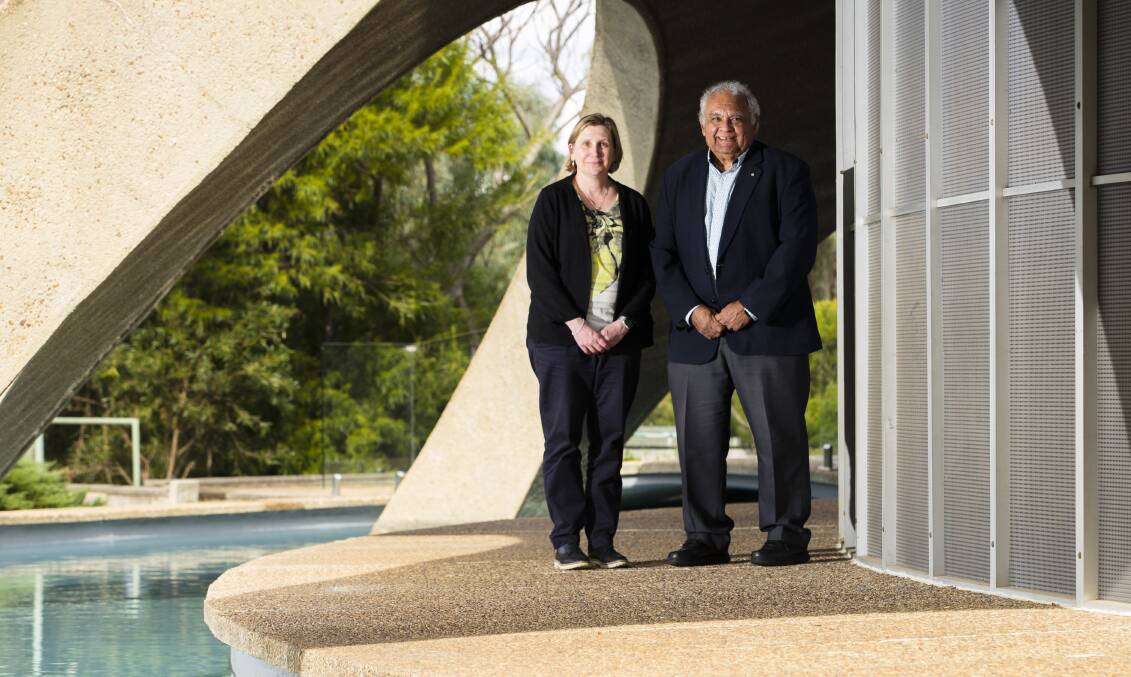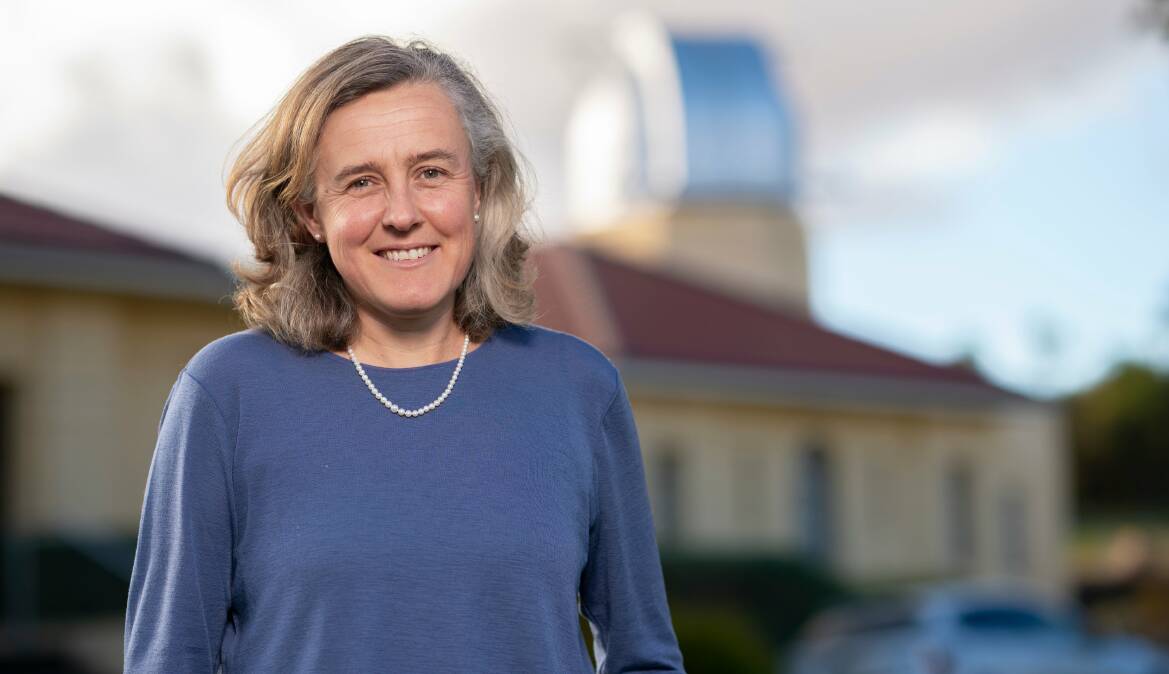
It's the dawn of a new era for the Australian Academy of Science which will celebrate its first Indigenous fellow, gender equity for its annual uptake and a changing of the guard.
Three Canberrans will be among the 2022 Fellows joining the ranks this week: Tom Calma, Chancellor of the University of Canberra, as well as Naomi McClure-Griffiths and Ute Roessner, both professors at the Australian National University.
The 22 Australians honoured for their contribution to science this annual uptake will be divided evenly between men and women, a first in the academy's history.
New fellows will be welcomed by Professor Chennupati Jagadish AC, who on Thursday takes the reins as the Australian Academy of Science President.
The University of Sydney had the most academics accepted, with four fellows welcomed, followed by UNSW Sydney with three appointed. The fellowship now stands at 590, elected by their peers for groundbreaking research.
ANU plant scientist Professor Roessner said there was hope among the science community that further change was afoot with the instatement of a Labor government, particularly around valuing universities as research providers.
Professor Roessner said there was need for the new government to recognise the importance of translating research findings into environmental pollution and climate change solutions.
In her own work, trying to understand how to increase crop yields in a changing climate, she said the time to act was now.
"Australia is the food bowl for Asia, so we need to make sure we remain in that position and produce quality food in sustainable quantities," she said.
Professor Roessner said being asked to join one of the most prestigious science institutes in the country was an honour.
"It has been years and years - I don't even know how many - since a female plant scientist has been elected," she said.
"I know my students will be very proud and happy to see their female supervisor being recognised."

The ANU's Professor McClure-Griffiths has been recognised for advancing the understanding of how the Earth's galaxy and its neighbours evolved, including the creation of a model proving the existence of a new spiral arm of the Milky Way.
Professor McClure-Griffiths has helped design multiple radio telescope facilities, included CSIRO's ASKAP and the planned globe-spanning SKA.
Her detailed atlases of atomic hydrogen gas in the Earth's galaxy are used by astronomers and astrophysicists around the world.
Professor Calma AO has been elected for championing the improvement of Indigenous peoples' health, education and justice for more than 45 years.
Professor Calma is the first fellow elected to the academy who identifies as an Aboriginal person. He is a descendant of the Kungarakan and Iwaidja tribal groups, whose traditional lands are south-west of Darwin and on the Cobourg Peninsula in the Northern Territory.
He said this was a privilege to be recognised and a great start, having come after some deserving Indigenous scientists.
"Hopefully this is just the beginning," Professor Calma said.
"Scientists have a role to encourage and support others to come through, in our case Aboriginal and Torres Strait Islander, but more and more people from ethnic minority groups should be supported, empowered and encouraged to get more involved in the sciences, in research, teaching and delivery.
"It took a long time before we got recognition of women at the level that we do and we know now within the university sector, while we have higher proportions of women in the sciences, we see that it's not reflected in the employment of women or the advancement of women in the sciences," he said.
"But all of these have to start at some point and this is one of those points in time I think."
The 2022 new fellows will present their work at Science at the Shine Dome on November 23, the academy's flagship event to honour outstanding achievements in science.
Professor Chennupati said efforts to improve gender diversity, including improved nomination processes and increased opportunities for recognition, would continue.
"We reflect a diverse and inclusive science community that recognises the widest range of talents, backgrounds, perspectives and experiences, and we are united by our contribution and commitment to scientific excellence," Professor Jagadish said.
We've made it a whole lot easier for you to have your say. Our new comment platform requires only one log-in to access articles and to join the discussion on The Canberra Times website. Find out how to register so you can enjoy civil, friendly and engaging discussions. See our moderation policy here.







